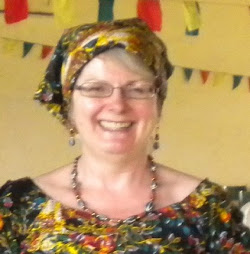We all knew there are problems here - that's why VSO work in this country - but I think the reality is only just hitting us. First during the training sessions and then travelling north west to Bamenda on the public bus, we are seeing more and more of how people live. We've learned a lot about the main VSO programme areas here - education, HiV/AIDS, participation and governance. As education is my professional interest, here's a bit of what I've picked up (my views of course, this is not an official VSO blog).
Women's lib? You gotta be joking. Overall in Cameroon 35% of people are illiterate; but in the Far North region, 72% of women cannot read and write. Over half of school age girls don't even register for primary school - of those who do, over half don't go on to secondary education. One in 5 are married at the age of 15.
Why?
- People think girls are less intelligent than boys
- No point investing in educating girls because they marry and leave home
- It's better to keep girls to work in the home
- Girls who do go to school get scared by the bullying and physical punishment, so they drop out.
Currently Cameroon is devolving the responsibility for education, health and other social services to local government. VSO are working in partnership with councils, community groups and other non-government organisations to increase participation in local decision-making processes and improve local governance.
I'm going to be doing organisational development work with Santa council, near Bamenda, to help increase their effectiveness and engagement with their community. Other Welsh colleagues are working with other councils and community organisations in similar ways, and one is evaluating the effectiveness of this whole short-term volunteer programme.





1 comment:
pink floyd
Post a Comment